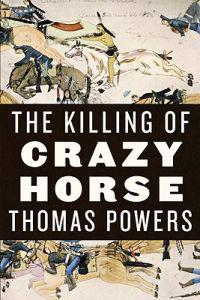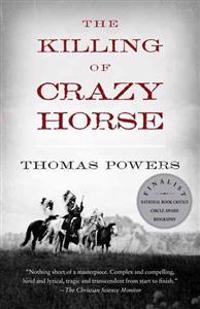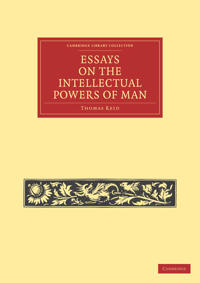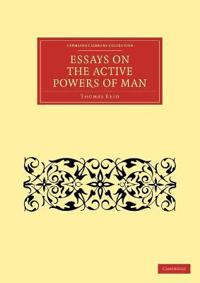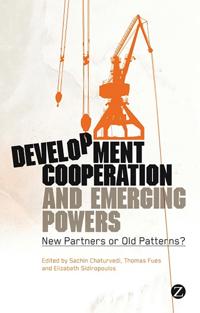The Powers of Aristotle's Soul (Inbunden)
avThomas Kjeller Johansen
ISBN: 9780199658435 - UTGIVEN: 2012-10Aristotle is considered by many to be the founder of 'faculty psychology'-the attempt to explain a variety of psychological phenomena by reference to a few inborn capacities. In The Powers of Aristotle's Soul, Thomas Kjeller Johansen investigates his main work on psychology, the De Anima, from this [...]
Awakening Your Psychic Powers (Pocket)
avHenry Reed, Charles Thomas Cayce
ISBN: 9780312958688 - UTGIVEN: 199606The Killing of Crazy Horse (Häftad)
avThomas Powers
ISBN: 9780375714306 - UTGIVEN: 201111With the Great Sioux War as background and context, and drawing on many new materials, Thomas Powers establishes what really happened in the dramatic final months and days of Crazy Horse's life.
He was the greatest Indian warrior of the nineteenth century, whose victory over General Custer at th[...]Masters of the Secrets Expanded - The Science of Getting Rich and The Master Key System Bestseller Version - Think and Grow Rich with The Powers of the Subconcious Mind and The Laws of Success (Häftad)
avWallace Wattles Charles Haanel, Thomas Troward, C. Wattles Haanel Mentz
ISBN: 9780615148137 - UTGIVEN: 200705Masters of the Secrets Expanded - This book is an executive summary and commentary on the best authors who taught the secrets of abundance who understood the ancient strategies of wealth, health, and peace of mind. Includes conceptual and advanced insights on the greats of New Thought, Mental Scienc[...]
American Carnage: Wounded Knee, 1890 (Inbunden)
avJerome A. Greene, Thomas Powers
ISBN: 9780806144481 - UTGIVEN: 2014-04As the year 1890 wound to a close, a band of more than three hundred Lakota Sioux Indians led by Chief Big Foot made their way toward South Dakota's Pine Ridge Reservation to join other Lakotas seeking peace. Fearing that Big Foot's band was headed instead to join "hostile" Lakotas, U.S. troops surr[...]
Essays on the Intellectual Powers of Man (Häftad)
avThomas Reid
ISBN: 9781108029698 - UTGIVEN: 2011-06Thomas Reid (1710-1796) was a philosopher who founded the Scottish school of 'common sense'. Much of Reid's work is a critique of his contemporary, David Hume (1711-1776), whose empiricism he rejects. In this work, written after Reid's appointment to a professorship at the university of Glasgow, and[...]
A Grammar of Music: To Which Are Prefixed Observations Explanatory of the Properties and Powers of Music as a Science and of the General S (Pocket)
avThomas Busby
ISBN: 9781108061582 - UTGIVEN: 2013-06-27The 1826 second edition of a primer on music theory and the principles of composition, intended as reference work for amateurs and professionals.[...]
Essays on the Active Powers of Man (Pocket)
avThomas Reid
ISBN: 9781108124690 - UTGIVEN: 2011-05The Scottish philosopher Thomas Reid (1710-1796) first published Essays on Active Powers of Man in 1788 while he was Professor of Philosophy at King's College, Aberdeen. The work contains a set of essays on active power, the will, principles of action, the liberty of moral agents, and morals. Reid w[...]
The European Union and Emerging Powers in the 21st Century (Inbunden)
avThomas Renard, Sven Biscop
ISBN: 9781409419563 - UTGIVEN: 201205The emergence of new powers fundamentally questions the traditional views on international relations, multilateralism or security as a range of countries now competes for regional and global leadership - economically, politically, technologically and militarily. As the focus of international attenti[...]
Intelligence Wars (Pocket)
avThomas Powers
ISBN: 9781590170984 - UTGIVEN: 2004-06No one outside the intelligence services knows more about their culture than Thomas Powers. In this book he tells stories of shadowy successes, ghastly failures, and, more often, gripping uncertainties. They range from the CIA's long cold war struggle with its Russian adversary to debates about the [...]
Development Cooperation and Emerging Powers (Häftad)
avSachin Chaturvedi, Thomas Fues, Elizabeth Sidiropoulos
ISBN: 9781780320632 - UTGIVEN: 201205Existing global frameworks for development cooperation are heavily dominated by the experiences of industrialized countries. However, emerging economies have begun to accelerate their development cooperation with other developing countries, and attempts to bring them into existing aid models have be[...]



